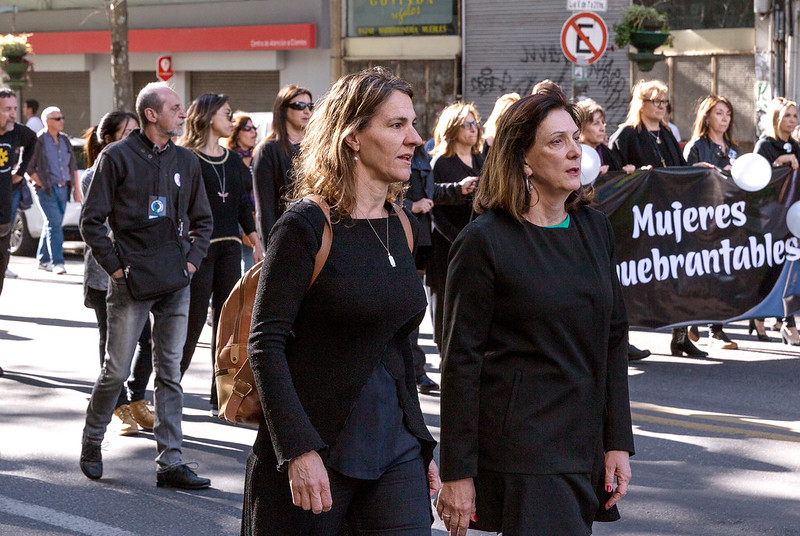Caring for Equality: Empowering Women in Uruguay
 In December 2015, Uruguay passed Law 19.353, establishing the National Comprehensive Care System. This was the first law that pushed for gender equality and laid the framework for various positions of care as a right, not only for children under 3 but also for the elderly and people with disabilities.
In December 2015, Uruguay passed Law 19.353, establishing the National Comprehensive Care System. This was the first law that pushed for gender equality and laid the framework for various positions of care as a right, not only for children under 3 but also for the elderly and people with disabilities.
The law, backed by the coordinated efforts of multiple ministries, regulated services, trained caregivers and public awareness initiatives aimed at rebalancing gender norms. The SNIC aims to challenge deeply entrenched gendered division of labor in Uruguay, where women disproportionately shoulder unpaid domestic and caregiving work.
SIEMPRE Centers: redefining care and empowering women
Uruguay’s National Comprehensive Care System, launched in 2021, introduced SIEMPRE Centers, which are early community childhood daycares with early-learning facilities managed by public, private and civil society partnerships, according to the March 2025 report. These centers offer up to eight hours of daily care and receive support from collaboration between trade unions, employers, communities and the Instituto Nacional de Niñas, Niños y Adolescentes (INAU).
Five components driving SIEMPRE’s impact are workshops for families comprising life and vocational skills like gastronomy (cooking), sewing, hairdressing, gardening and other crafts. These workshops aim to empower parents, primarily mothers, to increase their ability to pursue education or paid work due to freed-up time. Violence prevention is a welcome side-effect of SIEMPRE Centers, with staff often able to detect and respond to domestic or gender-based violence, boosting women’s physical safety, according to the March 2025 report. Lastly, centers help shift gender norms by providing crucial skills to young fathers like cooking and nursing, which are deep-rooted stereotypes assigned to women.
Legal advances for women
Legal framework and broader equality policies endorse key international women’s rights treaties and implement a progressive domestic legal framework. Notable laws include:
- The workplace non-discrimination (Law 16,045).
- Criminalization of domestic violence (Law 17.514) was recently updated in 2017 to remove the “crime of passion” loophole.
- Legal abortion (Law 18.987)
- Trans rights (Law 19.684)
Supporting networks and civil society organizations like Mujer y Salud en Uruguay advocate for sexual and reproductive health and rights through public awareness campaigns. Uruguay XXI, an agency that promotes investment and exports, has advanced gender equality in its workforce. Fifty six percent of its 2024 “Más Comercio” mentoring targets were women-led businesses, and women hold about 58% of its leadership roles.
Driving change
Further engagement, such as campaigns encouraging male caregivers, aims to break norms. For example, the MenCare Campaign engages men as fathers and caregivers to promote gender equality. Although progress is slow, Uruguay is making efforts to make SNIC a social service. By strengthening collective provision, Uruguay transforms care from a burden into a collective responsibility, which would validate unpaid work and reduce hidden gender costs.
SIEMPRE Centers often negotiate through collective bargaining involving unions, employers and the government. Union-business partnerships can produce systemic reforms.
Constant obstacles
However, despite formal equality, significant challenges persist, like unequal representation. For instance, women hold about 28% of parliamentary seats and top leadership roles, one of the lowest levels in Latin America. Women endure the brunt of unpaid labor. About 61.4% of women are involved in unpaid work, compared to 35.9% of men, resulting in women dedicating their time to domestic chores and caregiving, limiting their opportunities.
While the SNIC made strides in guaranteeing women’s care, the lack of funds makes it difficult to expand its resources. The SNIC budget share for the past five years has been stagnant, resulting in limited ability to construct and expand new centers nationwide. Violence against women in Uruguay remains at one of the highest rates in Latin America, with about 77% of women over 15 experiencing some form of gender-based violence, according to a survey conducted by the United Nations Uruguay.
Looking ahead
Uruguay’s SNIC is a bold, feminist-informed leap in public policy that directly confronts the gendered distribution of care and builds new pathways for women’s economic and social success. SIEMPRE Centers represent a strong frontline that provides care, economic empowerment, decision-making power, and violence prevention. Yet progress could halt without continued investment, cultural transformation, and stronger female representation.
– Sebastian Llerena
Sebastian is based in Edison, NJ, USA and focuses on Global Health for The Borgen Project.
Photo: Flickr
